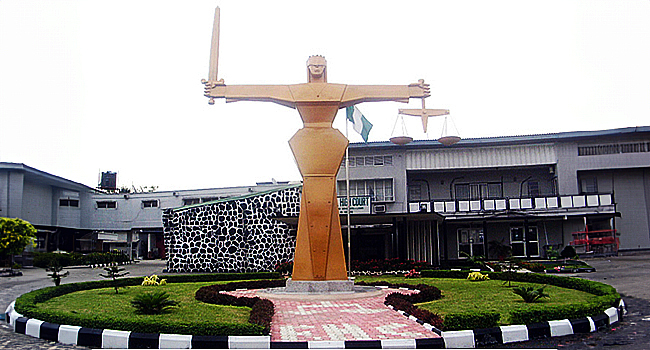Amnesty International (AI) and Transparency International have expressed concern about the procurement of official vehicles, and building of houses for judicial officers by the executive, saying the development is capable of compromising judicial independence in the country.
Accordingly, the global bodies (in Nigeria) have tasked the judiciary on the urgent need to maintain its inviolability, by rejecting gestures with underlying compromise.
The Head of Transparency International (Nigeria), Amnesty International (Nigeria), Board of Trustees (chairman), and Chairman, Transition Monitoring Group (TMG), Auwal Musa, made the position in a telephone interview with New Telegraph.
Musa also serves as Executive Director, Civil Society Legislative and Advocacy Centre (CISLAC). While charging the authorities to uphold the guiding principles of the rule of law, the international organisations insisted that separation of powers guarantees the independence of organs of government, and strengthens democratic institutions.
Asked to comment on the argument in some quarters that the development could impact on the independence of the judiciary, to an extent, Musa said: “Of course, we see the visible ones that have been happening in Abuja.
The President did not caution (against) it, the National Assembly did not caution (against) it. The states also… Compromise has already happened for it to be happening.
“So, the issue is that now, the kind of governance we have is governance without morality, without ethics, without value system, without respect for due process, without regard to the constitutional order.
So, it is impunity that (allegedly) runs the nation’s democracy, and disregard for rule of law. “So, in this context, there is nothing that you will not see. You will continue to be surprised, and they will always try to justify it in their funny way of circumventing due process.”
He highlighted the centrality of separation of powers in governance affairs, saying it helps to enthrone a fair, transparent, just and ordered society, where state institutions are allowed to function optimally. It further engineers accountability and transparency in the governance process.
“Am I not telling you the truth that it is not proper; that in order to have balance, and also to have proper separation of powers, to have independence, and to have fairness in any judgement that concerns either the individuals that are doing that in their personal capacities, or the respective offices they are holding? “That is why there is separation of powers among the judiciary, executive, and the legislature.
Because, the Constitution wanted to be fair to Nigerians, and to ensure that each arm of government is given responsibility to account. This responsibility is for them to also account for whatever role they are given. “So, it is not just created for decoration. It is purposefully to ensure that each arm of government is given that responsibility, and it is accountable to the responsibility given to it to manage.
It is not just because they wanted to say, okay, the legislature, the executive. No. It is purely to ensure that there is fairness, there is independence, and there is opportunity for any arm of government to do the work according to law.
“So, if one arm of government is not only dominating, but controlling, dictating the autonomy – the financial autonomy, even the operational autonomy of such arm of government then, clearly, you have succeeded in undermining the independence of that arm of government.
So, it is very disheartening to see that things like this are happening in Nigeria.” On the way forward, he noted: “The executive, the legislature, and the judiciary need to wake up to remember that Nigerians are watching, and the international community is watching.















